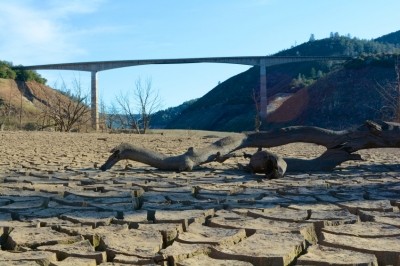Developed nations’ food imports threaten world water supplies
The report, from the Engineering the Future alliance, is global in scope, but focuses on the UK in particular and its reliance on ‘embedded’ or ‘virtual’ water in imported products. It estimates that two-thirds of the water used for UK imports is consumed in other countries, and says the food industry is the most damaging polluter of world water sources. The reliance on food imports could contribute to rising food prices, damage the economy, and even contribute to conflicts caused by water scarcity, the report said.
Professor Peter Guthrie, chairman of the working group behind the report, said that this could raise some difficult questions for the UK and other developed countries, such as whether it is responsible to import green beans from Kenya, for example, where water is already scarce.
Guthrie said: “The burgeoning demand from developed countries is putting severe pressure on areas that are already short of water. Our virtual water footprint is critical and we need to give it far more attention.”
However, the issue is complicated by the importance of food exports for developing nations’ economies.
Approximately 1,300 litres of water is need to produce one kilogram of wheat, the report said, and15,500 litres of water is needed for one kilogram of beef.
It said that currently 70 percent of available fresh water is used for agriculture, but with an estimated 40 percent increase in food production required by 2050, water scarcity is likely to become a global problem for the food chain. Not only that, but dietary habits are changing, with a move toward higher consumption of meat and vegetables, away from wheat and rice, which need less water to produce pound-for-pound. And population shifts from rural to urban environments put further pressure on water supplies.
Among other recommendations, the alliance said that businesses’ water use should be considered as part of corporate social responsibility strategies.
“Water security should become a core component of UK policy making,” it concluded. “Government must assess the interrelationship between water, food and energy security in UK, informed by a systems based approach, with a view to achieving an optimal balance of aligned national policy.”
The full report can be accessed here.














